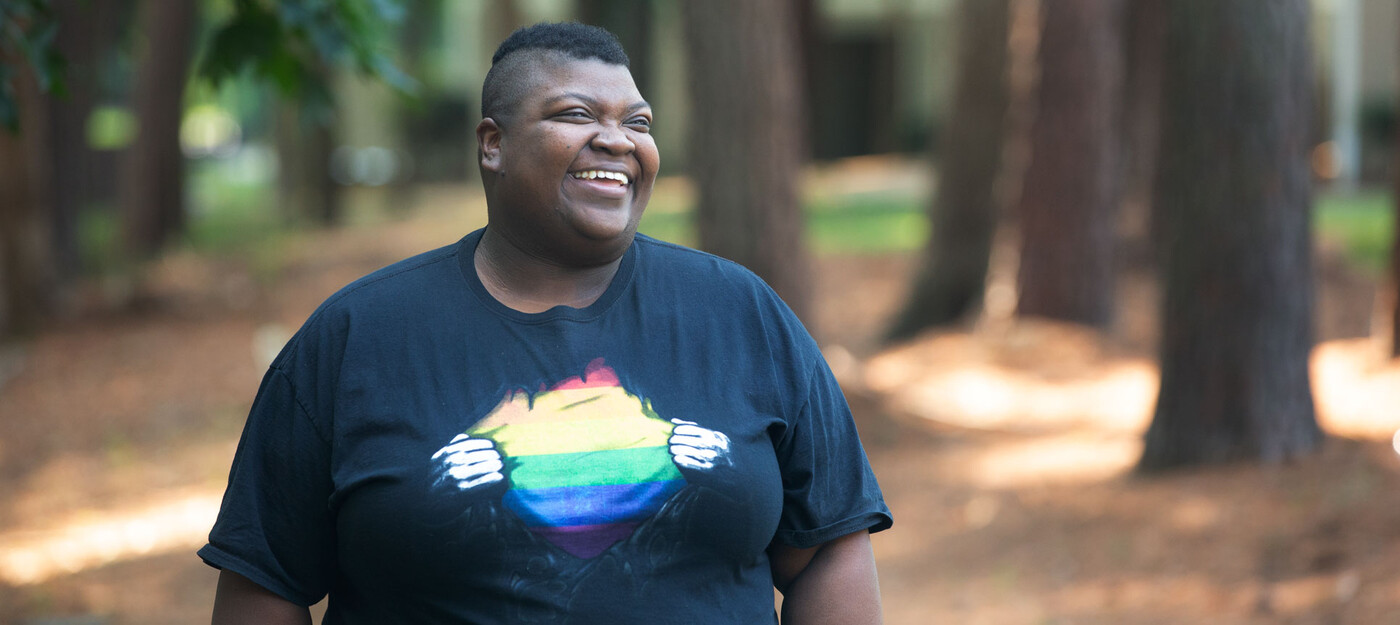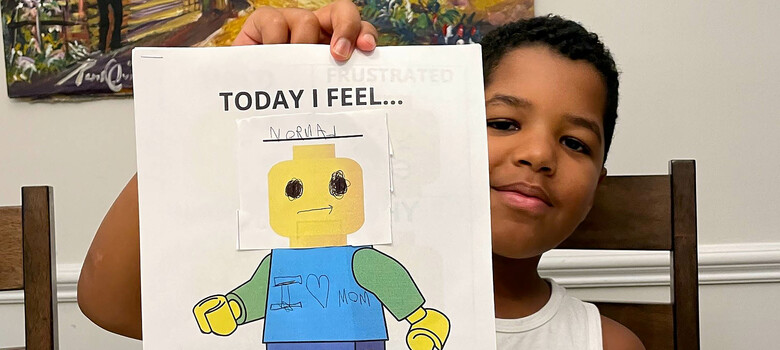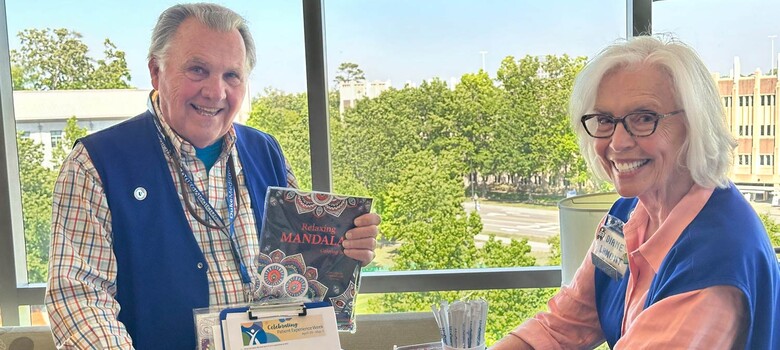Cancer Support Therapy Empowers Duke Patients at No Charge
Individual or group sessions part of collection of services for cancer patients

Nikki McLean has received emotional support through the Duke Cancer Patient Support Program, a service that helps patients undergoing cancer treatment and their loved ones.
Nikki McLean said a 2018 diagnosis of colon cancer at age 35 “came out of nowhere” and left her uncertain about her future. While a team of Duke Health medical experts treated her body, she also received emotional support through the Duke Cancer Patient Support Program. This service helps Duke patients undergoing cancer treatment and their loved ones at no charge.
McLean, a Raleigh resident and now 38, had surgery in March 2018 and began chemotherapy. She felt better and in the fall started seeing a medical family therapist to gain emotional support. Her sessions are part of a larger collection of cancer support services at Duke that includes individual and group therapy sessions, self-image consultations to help patients look and feel their best, and guidance from rehab experts so patients can move more easily.
Care for More Than Cancer
The goal of the no-charge offerings is to empower patients from diagnosis through treatment and beyond.
“Having that person to listen to me and be my support offers me relief and gives me strength,” said McLean, who has been meeting regularly with Patrick Plumeri, a Duke medical family therapist, for about three years. “It reminds me that I can be in charge of my health and that treatment is in my hands, too.”
Therapy Focused on the Person, Not the Diagnosis
“I was a little hesitant at first because I didn’t know him, he didn’t know me, and I didn’t know if I could tell him the things I was thinking,” McLean said of Plumeri. So, in her first meeting, she wore a favorite T-shirt that signals her pride as an identifying lesbian and support for the LGBTQ+ community. It mimics Superman pulling back his shirt to reveal the large, yellow “S,” but replaces the logo with a rainbow flag.
“Everybody has a right to individuality, and at Duke we always respect that sense of self, whatever it may be,” said Plumeri. “Relating to our patients is how we help them feel safe, and how we strive to honor their human experience. We’re serving people who aren’t identified by their diagnosis.
That kind of inclusivity is key for the success of the Cancer Patient Support Program and its services.
“I hold my head up higher when I wear that shirt, and from the moment I met Patrick, he was very open about [the shirt], and it didn’t matter to him,” McLean said. “That made me feel comfortable talking about myself and all the challenges I faced with my chemo.”
An Ongoing Support System
As part of her cancer treatment, McLean received chemotherapy every two weeks from early 2019 through June 2021. Doctors recently discovered cancer in her lymph nodes, and McLean said Plumeri has been pivotal in helping her through this next stage of planning for treatment. Due to COVID-19 restrictions, they now discuss issues like choices related to care plans and even diet during ongoing phone and video sessions.
“He really helps me get through from week-to-week,” she said. “He’s been there at every step to listen and validate my feelings.”
That connection is at the core of what staff provide as part of supportive services, Plumeri said.
“A patient and everyone who cares about them is emotionally impacted by cancer,” he said. “Being an outlet to help them adapt, process, and find paths forward is an honor.”



